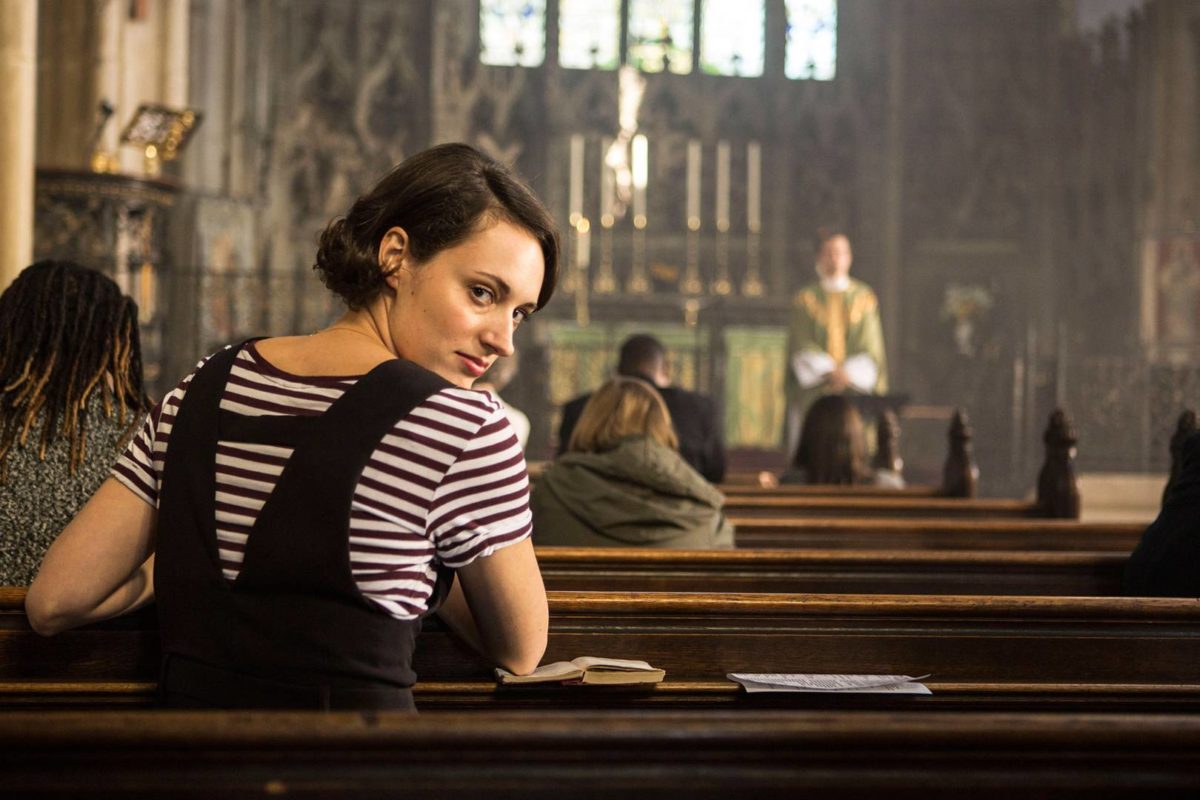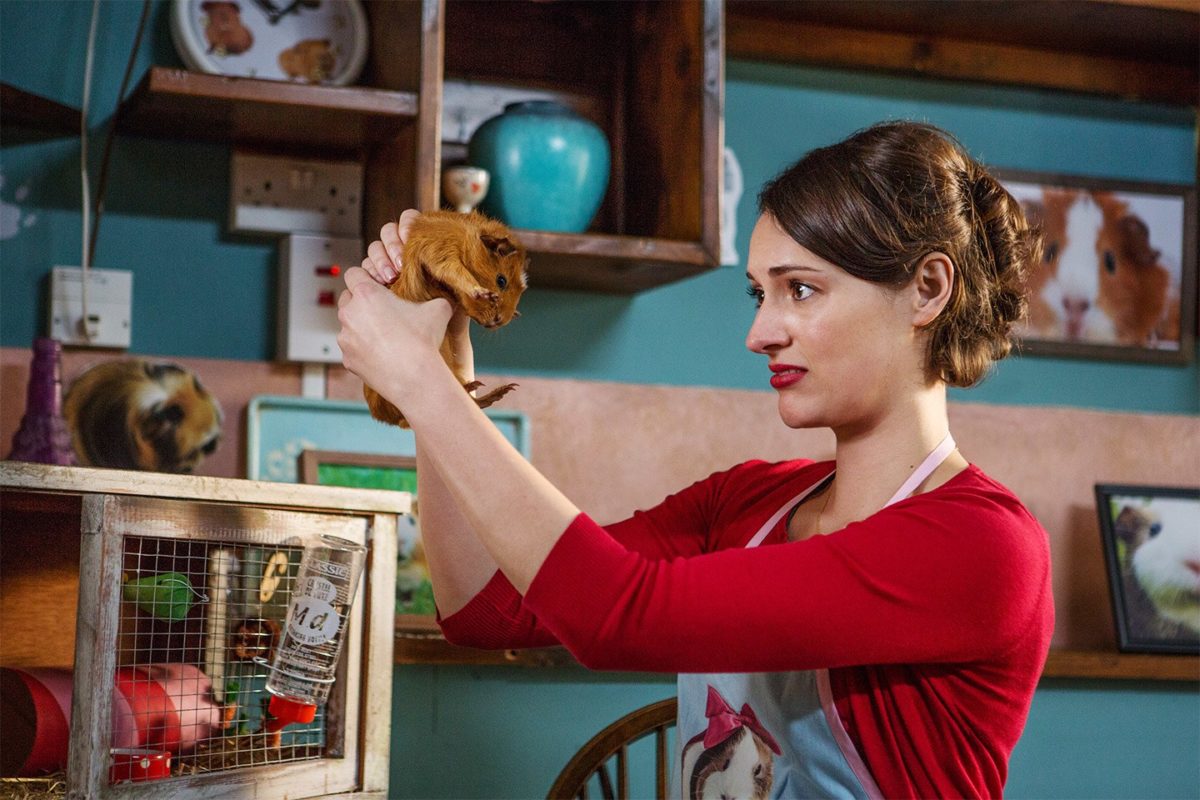From her critically acclaimed series, Fleabag, to the Golden Globe Winning Killing Eve, Phoebe Waller-Bridge is getting closer to complete world domination. If you don’t know her, you should – and if you know her already, then you know exactly what makes Waller-Bridge so damn magnetic.

2019 is the year of Phoebe Waller-Bridge. With her unique brand of humour, she’s injected a much-needed vitality into comedy that has audiences falling in love with her.
It all started in 2013 when Waller-Bridge brought a 65-minute, one woman play to Edinburgh Fringe Festival. In the play Waller-Bridge introduced us to self-proclaimed “bad feminist” Fleabag: a café-owning, hamster-hating, 20-something who struggles to navigate the complexities of everyday life following the death of her best friend. Self-deprecating and hilariously honest, Fleabag used a kind of overt vulnerability to drag you into the world – and the grief – of its central character. It didn’t take long before Waller-Bridge’s creation was snapped up by BBC and Amazon Prime.
Brutal honesty has always been a staple of successful comedies. Overt subjectivity, and personal anecdotes, allow comedians to tackle the thorny complexities of daily life, while giving us a good laugh in the process. In the hands of female comedians specifically, subjectivity is an empowering weapon that transforms vulnerability into something powerful, and ultimately very engaging. Shows like Hannah Gadsby’s Nanette, and even Amy Schumer’s recent comedy special Growing, use personal details to put forward a kind of vulnerability that seethes with anger, joy and pain.
Vulnerability – how we avoid it, manipulate it and ultimately need it – is front and centre in Fleabag. The show is punctuated by repeated fourth wall breaks and a direct address that includes the viewer in every moment. Every grieving guinea pig, awkward sex-scapade, or Obama-inspired masturbation is followed by a swift glance, or a witty aside, in our direction. Each time Fleabag looks directly at the camera, she pulls us into her world. It’s as if we start the series already in a personal relationship with her. Or more accurately, it’s as if she reserves a kind of vulnerability specifically for us, the viewer.

Fleabag’s witty asides endear her to us and her hilarious anecdotes hint at a sadness that makes her even more engaging, more relatable and seemingly more vulnerable. “The next person to walk in here is getting ridden to death” she says in her hamster-themed (and empty) café. When her father walks in, she quickly turns to us: “Not ideal.”
By the end of the series, these confessional asides are shown to be a carefully constructed coping mechanism that mask Fleabag’s grief. Suddenly, our presence behind the camera becomes oppressive. Fleabag can’t escape our gaze and she can’t control our opinion on what we see by making us laugh anymore. In the final episode, she is at her most vulnerable when she tearfully admits: “And that’s not funny.”
It’s no wonder Waller-Bridge won the BAFTA award for Lead Actress in a Comedy Series for her performance. Her writing is sharp, focused and outrageously funny. Her delivery burrows under your skin and injects laughter with layers of depth – and profanity – in equal measure.
Most recently, Fleabag has returned to its roots, opening as a one-woman play at the Soho Playhouse in New York City with Waller-Bridge as the title role once again. Season two of Fleabag has also just started streaming on Amazon Prime. It seems as if Waller-Bridge is primed for world domination.
It helps that she seems as relatable in person as on-screen. Just like Fleabag, Waller-Bridge puts forward a sincerity wrapped in boundless amounts of wit that is immediately likeable. In interviews, Waller-Bridge makes it easy for audiences to project the love they have for her character directly unto her. Likeability is a fickle business in Hollywood and audiences can turn on a celebrity before they even have a chance to verify their twitter account. It is interesting that Waller-Bridge is so damn likeable when the construction of likeability – especially as it relates to women – has always been front and centre in her writing.
Her other series, Killing Eve, translates the formula developed by Fleabag onto the Spy/Thriller genre. Earning a Golden Globe win for Sandra Oh in its first season, Killing Eve follows an assassin (played by Jodie Comer) and a detective (Sandra Oh) tasked with finding her. Both women are broken, imperfect and not obviously likeable (Comer is definitely a sociopath) – and they’re both incredibly funny.
Humour is usually the easiest way to construct likeability. In the hands of Waller-Bridge, humour traps the audience. We find ourselves open to characters that we might not like, characters that are broken, unlikeable and even psychopathic. More importantly, we end up reflecting on what makes a character, or a celebrity, likeable in the first place. It’s an odd feeling to laugh when an assassin murders someone, or when a character tells you how their best friend died.
But damn it’s funny.
Season 2 of Killing Eve will premiere on April 7th.
Season 2 of Fleabag is currently available on Amazon Prime.






